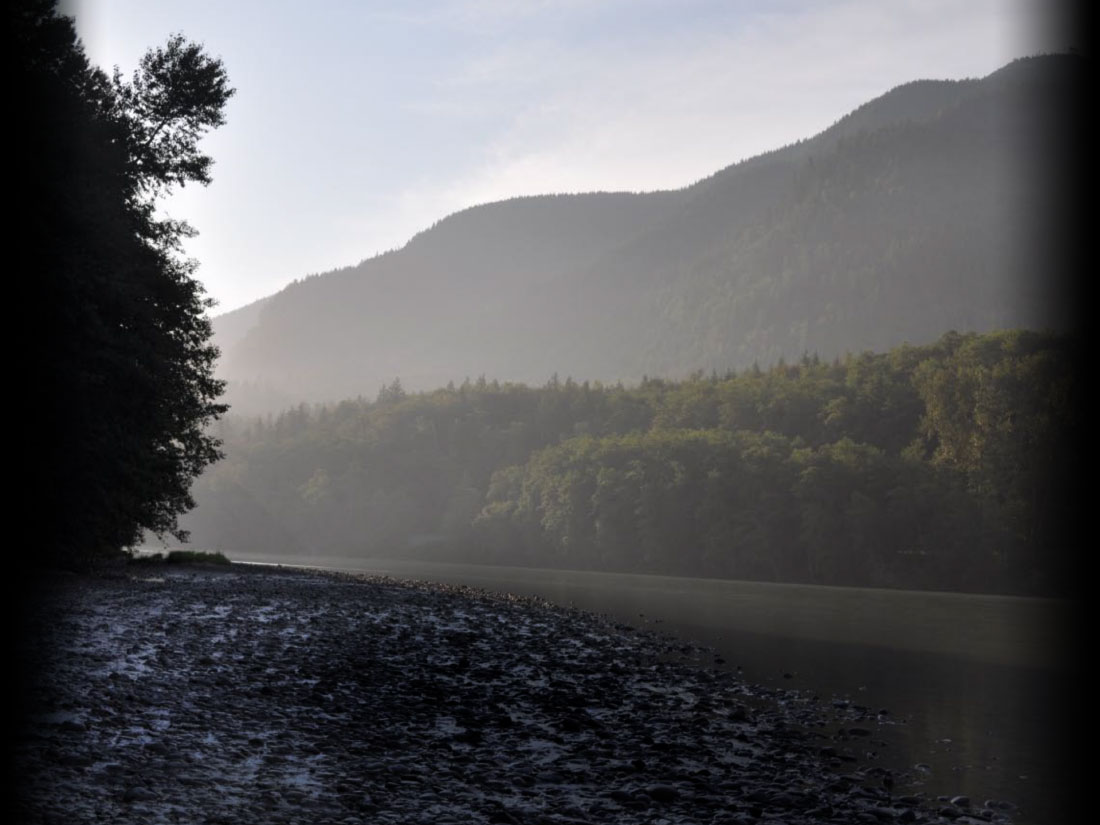Another grant round is underway at the Skagit Watershed Council to help save the Skagit’s wild salmon! This will be the 25th year that the Watershed Council has administered the WA state program to prioritize voluntary salmon habitat restoration projects in Skagit Valley, and it is the biggest year ever!! Nineteen projects were submitted this year by a range of county, tribal and state governments and non-profit organizations for a total of $47.8 million. Sixteen of these projects, totaling $7.2 million, will be considered for Salmon Recovery Funding Board funds. The other three very large projects, totaling $40.6 million, will compete for Puget Sound-wide or state-wide funds allocated by the state legislature. These projects mean hope for recovering salmon, jobs for Skagitonians, and conservation of our beautiful Skagit landscape.
Washington State provides funds annually (sometimes with federal support) to help protect and recover wild salmon populations throughout the state. As part of that state-mandated process, the Watershed Council organizes committees that have the responsibility to evaluate and prioritize voluntary salmon recovery projects.
As part of the project evaluation process, site visits to proposed project locations take place in early May. Technical project review by the TRC happens in July and final decisions about project prioritization by the LECC happens in August. Stay tuned for more details about each of the projects as project sponsors finish up their proposals by the end of June.
On March 27th we held our first quarterly Council of Members meeting of 2024. The “Council” of the Watershed Council is made up of 46 member organizations all committed to our mission of facilitating voluntary salmon recovery projects based on the best-available science.
As a 501(c)(3) non-profit organization, the Watershed Council is governed by a Board of Directors. At the quarterly meeting we held Board elections. The Board traditionally has had representatives from of all three treaty tribes, state agencies, county government, conservation non-profits, and representatives from other Watershed Council member organizations. A key element to success is having Board seats available for the salmon co-managers in the Skagit, the Sauk-Suiattle, Upper Skagit, and Swinomish Indian Tribes and Washington Department of Fish and Wildlife. With the recent elections, nine of the eleven available Board seats are filled. There is always the opportunity for past board members to rejoin the organization’s leadership or for different member organizations to join the Board for the first time. The Council of Members and the Board are our “Community Partnership for Salmon”.
The Council reelected Skagit County Commissioner Peter Browning for a second term and elected Kara Rowe to her first term. We are pleased Commissioner Browning was willing to continue on the Board. We are excited to welcome Kara, the Policy Director of Western Washington Agricultural Association, as our newly elected member. WWAA was a founding member of the Skagit Watershed Council and has participated in the Lead Entity process for years. We are thrilled to now have Kara on our Board and bringing the perspective of a coalition of diverse, commercial farming operations in northwest Washington. Agriculture is part of the integral fabric of the economy in the Skagit watershed and helps make the Skagit a great place to live.
We are grateful to these exceptional people on the Board who choose to invest their time and talent toward serving the Skagit Watershed Council’s mission. We have a strong team advocating for Skagit salmon!
The Watershed Council’s Community Engagement Program is also busy this time of year teaching kids in schools about salmon and water quality and organizing outreach and education events for the community, including a presentation to Salish Sea Stewards. In support of Skagit teachers, we have an update to the STEAM guide for K-12 teachers coming out in mid-June and a TeachSkagit.org website, which will serve as a more interactive way to communicate with teachers about conservation education resources available in the Skagit Watershed. Check out our community calendar for educational and volunteer events. You can also see some of our community education videos on our website as well as recordings of our annual riparian conference.
Our next quarterly meeting will be June 6th at 1:00 at Skagit Publishing. We will hear about some hot-off-the-press science about the positive impacts of estuary restoration on salmon—a success story!
